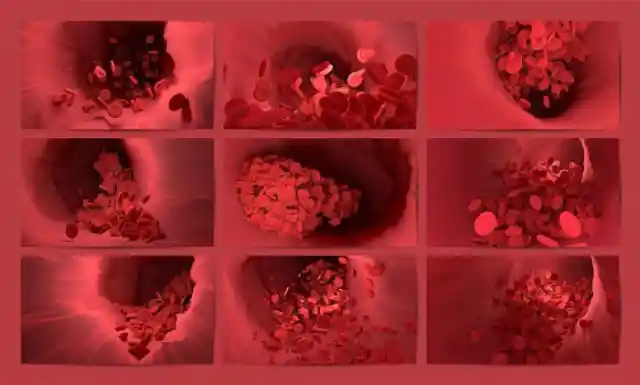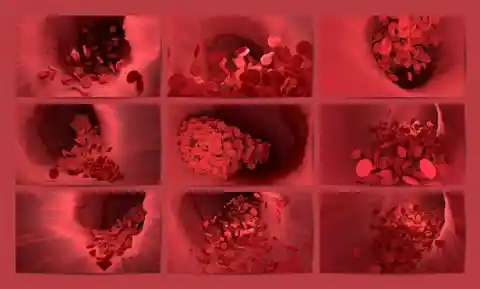Pancreatic cancer arises inside the tissues of the pancreas which is a major endocrine organ present behind the stomach. The pancreas has a vital role to play during digestion as it produces enzymes that our body requires in order to digest carbohydrates, fats, and proteins. A few symptoms of pancreatic cancer are quite tough to detect and might not have your attention. Many of them are the same as other conditions.
Abdominal Pain
The most common signal of pancreatic cancer is feeling pain in the abdomen. Almost 70 percent of pancreatic cancer patients face this symptom. When cancer impacts the nerves and other organs located close to the pancreas, sensations can vary from mild cramps to severe unbearable pain that might aggravate while lying down or sitting. During the early stages, such discomfort may come and go all day long. But as the disease advances, pain becomes continuous and its severity increases.


Weight Loss
People suffering from pancreatic cancer often lose weight in an unexpected way and observe changes in appetite and eating patterns. Such a person might feel strangely full despite eating way less than a normal diet which in turn, leads to eating less than usual. Pancreatic cancer can have an effect on the ability of the pancreas to produce digestive enzymes that assist in the digestion of food, especially fat-rich ones. Consequently, the body is unable to digest the food completely and can’t absorb all the nutrients. This results in major and noticeable weight loss over time.


Jaundice
Jaundice is basically a medical term that implies yellowing of the skin and the white region of the eyes. It happens in almost half of pancreatic cancer cases. Some other signs of jaundice are pale stools, dark urine, and itchy skin. Jaundice is a direct outcome of the accumulation of bilirubin, a by-product of red blood cells. Bilirubin is there in the bloodstreams of all healthy individuals, but expanding tumors tend to block the bile ducts that causes it to reach extreme levels. The condition does not lead to any pain, but it can suggest pancreatic cancer or another disease.


Nausea and Vomiting
Nausea and vomiting can happen at all stages of pancreatic cancer. A pancreatic tumor might block the bile duct or put pressure on the duodenum, impacting digestion. It can also lead to inflammation. Both of these reactions can cause chemical imbalances in the body and trigger nausea.


Bowel Troubles
One of the most common symptoms linked with pancreatic cancer is steatorrhea which is a condition wherein stools tend to be large, oily, and pale. They may float, have a stench, and consist of undigested food. This condition restricts the smooth production of enzymes that are essential for the digestion of specific nutrients, particularly fat. Undigested food being released fast from the body results in diarrhea and weight loss.


Blood Clotting
At times, the first hint towards an individual having pancreatic cancer is the formation of blood clots in large veins, specifically in the leg. This is known as deep vein thrombosis or DVT. Its symptoms range from pain and swelling to redness and warmth in the affected region. Sometimes, a piece of this clot might break off and make its way to the lungs leading to difficulty while breathing and in turn, chest pain.


Diabetes
In certain cases, pancreatic cancer can cause diabetes. The pancreas plays the role in the production of insulin, which regulates the level of sugar in the blood. This process is disturbed during the growth of pancreatic cancer as cancer reduces the abilities of the insulin-making cells. The symptoms may be unquenchable thirst and insatiable hunger and also, an urge to urinate very often. Blood tests are able to detect slight changes in blood sugar levels to identify and diagnose diabetes before it completely takes hold.


Fatigue
Fatigue might arrive as an early symptom of pancreatic cancer, leading to lowering of energy, lack of concentration, and slow mental actions. Doctors are still uncertain about the cause of such fatigue, but it is possibly connected to the body’s struggles to battle cancer. Pain results in difficulty while sleeping for people having pancreatic cancer, which can cause fatigue. Side effects from chemotherapy and further treatments might also contribute to fatigue.


Depression
Many patients have reported mood changes and depression before they received a proper diagnosis of pancreatic cancer. Mild to severe depression may attack during the early stages of many cancers. It is crucial for people experiencing extensive and continuous episodes of depression to see a professional and talk about it.


Gallbladder Enlargement
Imaging tests including computed tomography (CT) scans and magnetic resonance imaging (MRI) is able to notify the doctors about the occurrence of symptoms such as enlarged gallbladder. When a pancreatic tumor acts as a blockage to the bile duct, it causes bile to keep building up in the gallbladder, further resulting in enlargement and inflammation of that organ. As it grows, a palpable lump can develop right under the rib cage on the right side.

